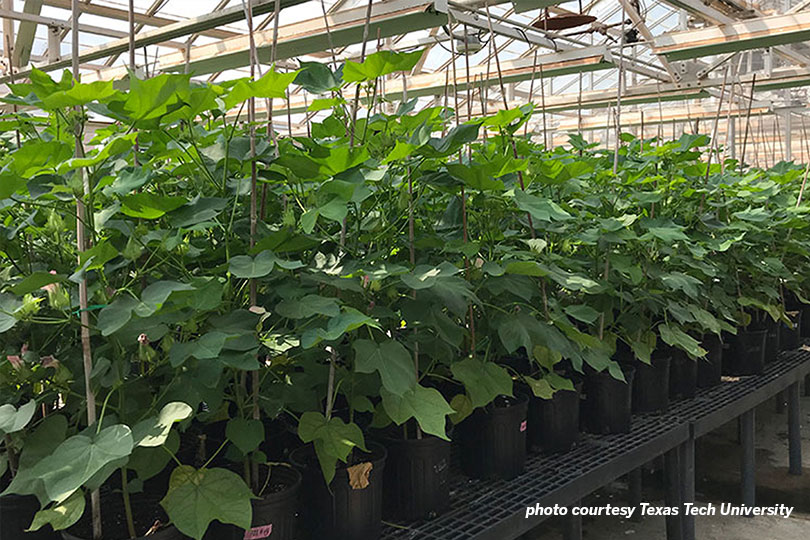By Jennifer Dorsett
Field Editor
A group of Texas Tech University (TTU) researchers genetically modified cotton plants to doubled fiber yields for cotton grown in semi-arid climates like those found on the Texas High Plains
Hong Zhang, a TTU professor of Plant Molecular Biology and Plant Biotechnology, genetically modified a cotton variety with fiber yields 133 percent higher than that of wild-type (natural, typical form) cotton in West Texas dryland farm conditions during the first year of his current research project.
Zhang noted it was a very dry year, but the following year, when conditions were wetter, the modified variety still outperformed the wild type by 81 percent.
“Eighty percent is still huge,” he said. “It’s a dramatic improvement, but we can make a much bigger improvement.”
Two genes, AVP1 and OsSIZ1, were modified by the researchers for co-overexpression. The results were highly consistent and repeatable, according to Zhang. Because of the nature of the genetic modifications, even if the modified plant grew in an exceptionally wet year, the plants would still yield more fiber.
There is potential for the results to be duplicated in other crops like wheat or corn. Zhang noted the two genes modified are present in every plant species.
The modifications are applicable to farming conditions both abroad and at home, especially in the eight High Plains states served by the Ogallala Aquifer.
The Ogallala, which stretches from South Dakota to the Texas Panhandle, supports about 20 percent of the nation’s wheat, corn, cotton and cattle production. But water is being extracted from the aquifer at a rate faster than it is being replenished, leading to a decades-long decline in aquifer levels and threatening area agricultural operations.
“This is why our research is so important, because we can save water,” Zhang said. “Water is the top limiting resource in the agricultural industry.”
He hopes to begin testing the results of his research in a larger-scale field trial, with a goal of adding sorghum and corn plants to the study.
Meanwhile, six of Zhang’s students are studying more than 20 different genetic combinations to find other modifications to improve plant hardiness and other desirable characteristics.
“I am optimistic, because I think that some compilation of these genes that we’ve created will become applicable,” he said. “Texas Tech gave me this opportunity to do this research here on this campus. If we can do something, that is great. We are paying back to our community and our state. This is what we do—help our society, help human lives. I am very proud of our research here.”
Read more about the research in a new paper published in the Plant Biotechnology Journal.


Very cool